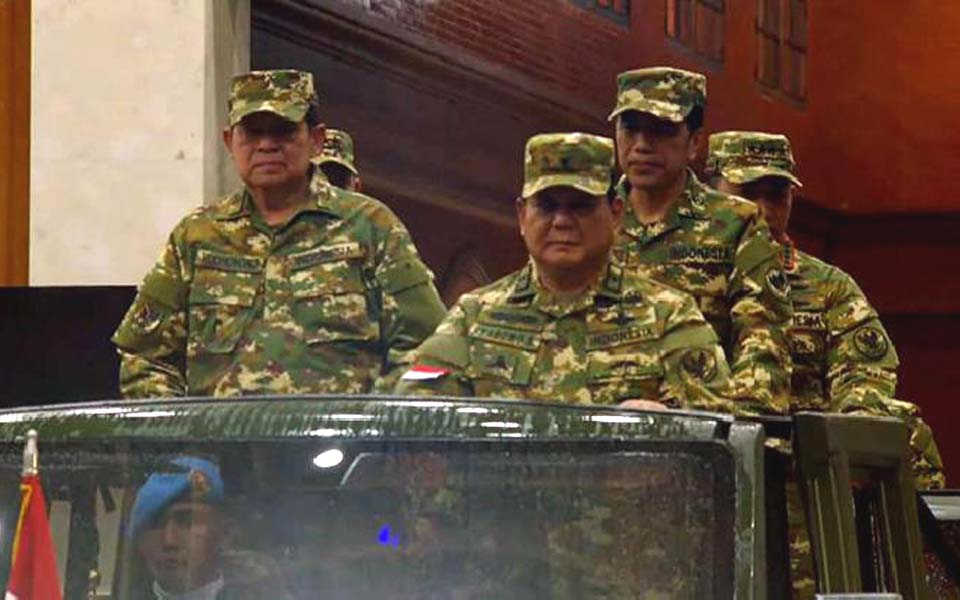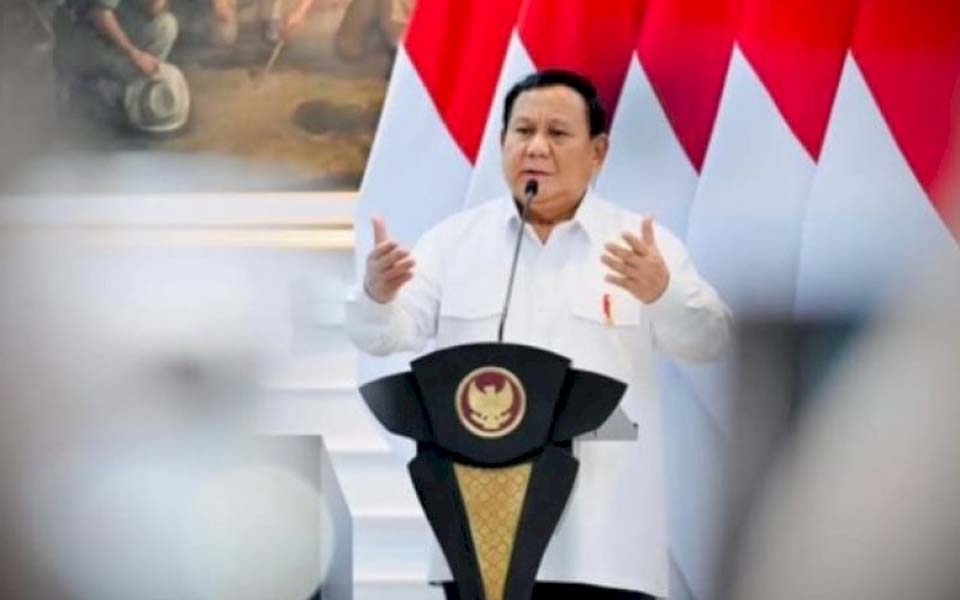Jakarta – A study by the Institute for Development of Economics and Finance (INDEF) on the decline of democracy in Indonesia since 2020 found that the results were not pleasing. If this decline in democracy continues, the result is predicted to be worse than expected.
This was conveyed by Wijayanto PhD in an online discussion titled The Future of Democracy if the Jokowi Dynasty Wins organised by Paramadina University in collaboration with the Institute of Research, Education and Information on Social and Economic Affairs (LP3ES) held on Tuesday January 9.
The director of LP3ES' Media and Democracy Center quoted Levitsky and Ziblatt (2018) who said that there were four indicators of authoritarian behavior, namely rejection (or weak commitment) to democratic rules, denying the legitimacy of political opponents, tolerance of or encouraging violence, and a willingness to limit opponent's civil freedom including the media.
"Moreover, there are six political myths written about by Yoes Kenawas (2023), there are no political dynasties in a democracy, political dynasties are very strong political entities, dynastic politics cannot be separated from the patrimonial culture of Indonesian society, political dynasties are due to economic inequality, that the public is allergic towards political dynasties, and the nomination of [President Joko "Jokowi" Widodo's eldest son] Gibran [Rakabuming Raka] as a vice presidential candidate is not a form of political dynasty", he said as quoted in a press release in Jakarta on Thursday January 11.
Wijayanto said that today's regime only took nine years to resemble the New Order regime of former President Suharto. Yet the New Order took 20 years to establishing itself in power. "Do we have to continue to wait, even though the various symptoms of this democratic retreat can clearly be seen", he said.
Constitutional law observer Bivitri Susanti said that the phenomenon of autocratic legalism in a democracy is a perspective that prioritises legalism, namely everything based on state law, but ends with autocratism.
"The planned and uninterrupted attacks on institutions whose duties are actually to overseeing their actions, in the context of its democratic mandate, are marked by the weakening of the DPR [House of Representatives], the weakening of civil society, the killing of the KPK [Corruption Eradication Commission] and the weakening of the Constitutional Court. All of this was carried out within the corridor of the law, through the formation of laws and regulations and law enforcement. The final goal being weak control, so democracy can be abused", he said.
From a legal perspective, Susanti sees that during the regime of President Widodo, there has been a destruction of institutions that should control the administration.
"Democracy [should be] managed by the fence of the rule of law, namely restrictions on power and [upholding] human rights. Not just subject to 'the most votes'. But there are demands for the principle of restricting power to safeguard human rights", he said.
Touching on the retreat of democracy, political observer Hendri Budi Satrio warned that this gives rise to a big question, who is a symbolic figure that can defeat Widodo at this time.
Satrio said there was no exact answer to this question. "In short it is the return of Indonesian democracy back to zero, with the aim of building a new society. But the costs incurred would be very great", he stressed.
"This very extreme idea, in order to be able to draw a clear line, is a ruler who wants to continue to hold on to power behind the word democracy. Hopefully communication between the 01 and 03 camps [the election tickets of Anies Baswedan-Muhaimin Iskandar and Ganjar Pranowo-Mahfud MD] can be established with the aim of not continuing the dynastic politics of the Jokowi regime", said Satrio.
Meanwhile, political observer and CEO of Polmark Indonesia, Eep Saefulloh Fatah, stated that basically everyone has the potential to abuse power.
Therefore, said Fatah, the constitutional limit on two terms in office for the president must be reregulated. The reason being that it is feared that the president can be involved in the misuse of power, being unfair or favouring certain candidates.
"If the Jokowi (dynasty) wins (then) indirectly it will result in our democracy losing. But there is no guarantee that democracy will win, if Anies or Ganjar wins. What must be the next agenda item is rehabilitating democracy", he asserted.
Therefore, he said, President Widodo must be treated the same as anyone else in mythological and historical terms. "The mythological side of Jokowi is very excessive, but there's no point regretting this because we must continue to fight within the dynamics of democracy", he concluded.
[Translated by James Balowski. The original title of the article was "Diskusi Paramadina dan LP3ES: Masa Depan Demokrasi Jika Dinasti Jokowi Menang Pilpres".]















